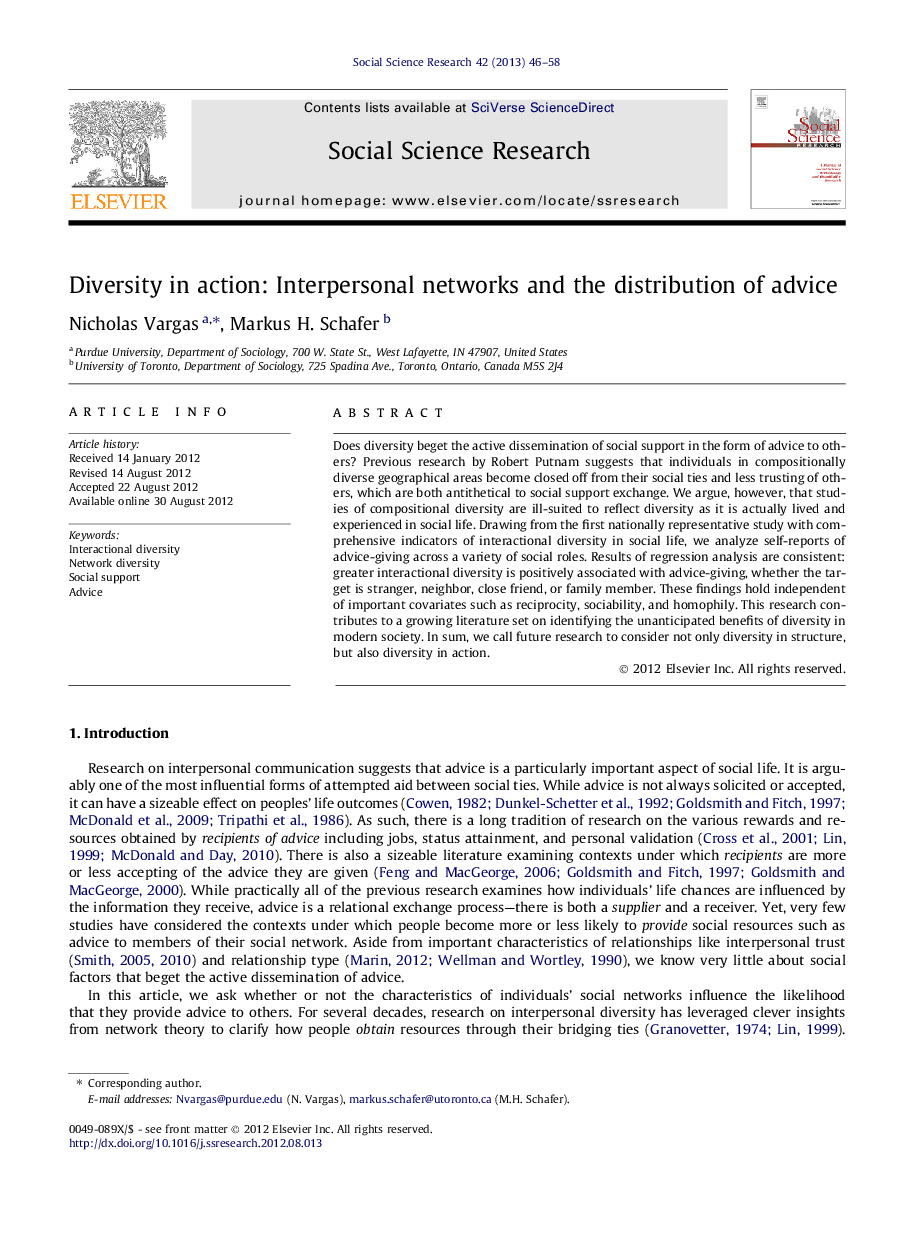| Article ID | Journal | Published Year | Pages | File Type |
|---|---|---|---|---|
| 956026 | Social Science Research | 2013 | 13 Pages |
Does diversity beget the active dissemination of social support in the form of advice to others? Previous research by Robert Putnam suggests that individuals in compositionally diverse geographical areas become closed off from their social ties and less trusting of others, which are both antithetical to social support exchange. We argue, however, that studies of compositional diversity are ill-suited to reflect diversity as it is actually lived and experienced in social life. Drawing from the first nationally representative study with comprehensive indicators of interactional diversity in social life, we analyze self-reports of advice-giving across a variety of social roles. Results of regression analysis are consistent: greater interactional diversity is positively associated with advice-giving, whether the target is stranger, neighbor, close friend, or family member. These findings hold independent of important covariates such as reciprocity, sociability, and homophily. This research contributes to a growing literature set on identifying the unanticipated benefits of diversity in modern society. In sum, we call future research to consider not only diversity in structure, but also diversity in action.
► First national study to analyze predictors of advice giving. ► Advice giving is associated with relationship reciprocity and personal sociability. ► Individuals with diverse social networks are more likely to provide advice to others. ► Relationship between advice and network diversity holds net of reciprocity and sociability. ► Network diversity increases advice giving even for individuals with low levels of sociability.
